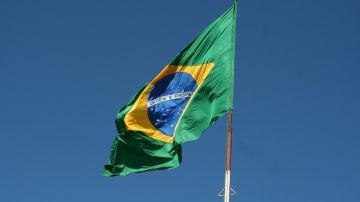Brazil Faces Calls for Reparations for Role in Slave Trade
The Bank of Brazil is being asked to offer reparations for their role in the slave trade

Photo: Pixabay/ Gleidiçon Rodrigues
For decades now, the role that Latin America played in the international slave trade has largely gone ignored or overlooked. Instead, the history of the region, much like in the U.S., has pretended that we’ve always been a welcoming, diverse, and inclusive place. But within the last few years, there have been productive strides toward undoing that myth and repairing relationships with the communities that have been most affected, such as Afro-Brazilians. Most recently, the Bank of Brazil, the second-largest bank in LATAM, held a forum at the Portela Samba School in Rio de Janeiro to apologize for its role in kidnapping 5 million Africans, more than any other country, and forcing them into slavery. It’s no coincidence that today, more than half of Brazil’s population identifies as Black or biracial, signaling that the history and legacy of slavery continues to live on and that financial reparations are more necessary than ever, according to the Associated Press.
“Today’s Bank of Brazil asks Black people for forgiveness,” said executive manager André Machado in a statement at the forum. “Directly or indirectly, all of Brazilian society should apologize to Black people for that sad moment in our history.”
Demands for slave reparations have been happening in the Black community for years and it’s only now that the Bank of Brazil is responding. Until slavery was abolished in 1888 in Brazil—the last country in the West to do so—they were responsible for kidnapping more Africans than any other nation including the U.S. and subjecting them to forced labor. They even encouraged clients to declare Black slaves as part of their financial assets in order to secure loans and fuel the economy. Today, while the bank has assets equating to $380 billion, Afro-Brazilians face unprecedented levels of economic, education, and health inequity. All-Black communities and households face poverty rates of 75 percent, earning less than half of white households. Because they are more likely to be poor and face gang violence, their average life expectancy is also seven years less than the average for white people. Half of the population is illiterate, with 40 percent unable to complete elementary school. Despite these statistics and the push for reparations, many Brazilians including former president Jair Bolsonaro have spoken up against it. “What debt? I have never enslaved anyone in my life,” he said in a TV interview in 2018, a few months before he won the presidency.
Many institutions in Brazil have taken decisive action including passing affirmative action laws to support Black students in universities, helping Black people secure jobs, and appointing Black politicians to positions of leadership. Brazil’s racial quota system, which reserves spots in Brazil’s public and private universities for students of African or Indigenous descent, has led to a 400 percent increase in Black students a decade after it was instituted in 2012. Another notable change was when the Bank of Brazil appointed Tarciana Medeiros to serve as the bank president, the first time a Black person has served in the role.
“Faced with the horror of 350 years of slavery, quotas are insufficient. We need to expand the discussion on reparations,” lawyer Humberto Adami, president of the Racial Equality Commission of the Brazilian Lawyers Institute, said according to the AP.
Conversations surrounding reparations are ongoing. Though the bank has yet to comment on or promise reparations to families of former slaves, citizens are hopeful that sweeping changes will come.















